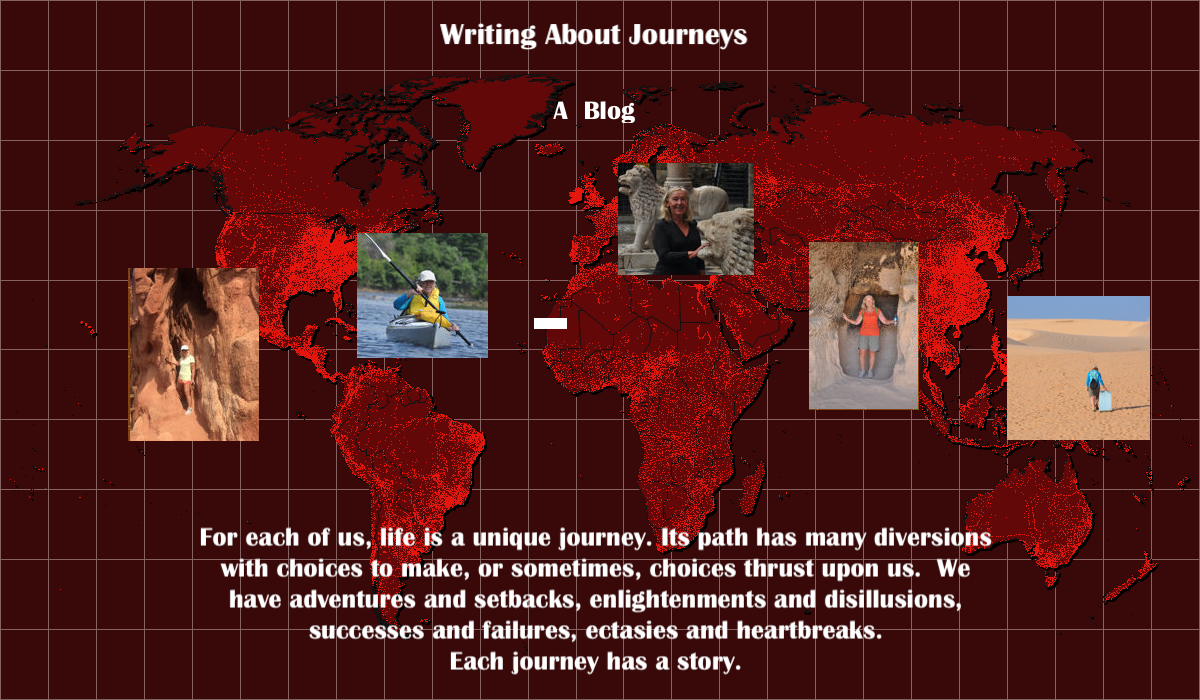“Straight roads do not make skillful drivers.”
Paolo Coelho, Brazilian novelist
Many types of obstacles may lie in the path of a writer’s journey but those who succeed demonstrate that most can be overcome.
Sometimes the greatest impediment is the writer’s SELF DOUBT. It’s important to remember that even extremely successful authors have suffered crises of confidence.
Twelve different publishers turned down J.K. Rowling’s first book. A single mom, depressed and living in poverty, she even contemplated suicide. Imagine if she never got to share Harry Potter!
Likewise, Stephen King’s first novel was rejected thirty times. He was so frustrated he threw it in the trash. If his supportive wife hadn’t saved it, Carrie would not have been read by millions of people.
TIME can be another constraint because lives are busy and full of distractions. Good writers find the time.
Arthur Conan Doyle, creator of Sherlock Holmes, was a busy English surgeon but he passed the time between patients by writing stories. The poet William Carlos Williams worked as a doctor in Rutherford, New Jersey during his entire writing career.
James Joyce wrote part-time while teaching English on the European continent and Frank McCourt, the author of the Pulitzer-winning memoir, Angela’s Ashes, taught in New York City high schools and colleges during his entire career.
Kurt Vonnegut maintained a string of day jobs including a stint as an advertising agent and running a Saab dealership in Barnstable, Massachusetts. He was working as an English teacher when his novel Cat’s Cradle became a bestseller.
Herman Melville worked for 22 years as a deputy customs inspector at the New York docks while continuing to write in the evenings, on weekends and during vacation.
T.S. Eliot worked at Lloyd’s Bank while he completed and published “The Waste Land” and Lewis Carroll, the author of Alice’s Adventures in Wonderland was also a mathematician, photographer and teacher.
Some writers have to figure out MOTIVATION. For novelist Anne LeMott, it’s the need to not have regrets at the end of your life because you’ve never written your memoir or novel. For Colson Whitehead, who wrote The Underground Railroad, it’s about being appreciated. He has said, “… when writers put their work out into the world, they’re like kids bringing their broken unicorns and chewed-up teddy bears into class in the sad hope that someone else will love them as much as they do.”
Some use the excuse of LACK OF SUPPORT from family not to write. Paul Theroux, in his cantankerous way, refutes this need: “Your mother will not make you a writer. My advice to any young person who wants to write is: leave home.”
LEARNING DISABILITIES could be seen as a major obstacle but have not deterred some of our greatest writers.
Richard Ford, a Pulitzer Prize-winning American author is dyslexic and so is Academy Award-winning screenwriter and novelist John Irving. Both men credit their disability with making them slow down and being more thoughtful about words. French writer, Gustave Flaubert who was also dyslexic, explained his disability this way: “I have the handicap of being born with a special language to which I alone have the key.”
Dav Pilkey was diagnosed with ADHD and dyslexia at an early age. His disabilities caused him to act out in class, and he spent lots of time banished to a desk in the school hallway. It was at this desk where he created Captain Underpants, the character that made him famous as an author and illustrator of children’s literature.
Both Agatha Christie (the best-selling author of all time) and Avi suffered from the learning disability called dysgraphia, which causes the reversal or misspelling of words. They both persevered and had great literary success.
Amazingly, there are successful authors who have overcome CATASTROPHES, either imposed by others or as a result of a physical condition.
John Milton wrote “Paradise Lost” after he went blind at the age of 43 and at that same age, Jean-Dominique Bauby, a well-known French journalist and editor of the French fashion magazine Elle, suffered a massive stroke which left him speechless and paralysed. He wrote his memoir The Diving Bell and the Butterfly by blinking every time a person reciting the alphabet reached the required letter.
Victor Frankl, who was imprisoned in several concentration camps during the WWII, went on to write a number of books. His most famous, Man’s Search for Meaning, has sold over 10 million copies and been translated into 24 languages.
Paulo Coelho, the best-selling Portuguese language author of all time whose seminal work, The Alchemist, has been translated into 80 languages, was committed to a mental institution at the age of 17. His parents were concerned about his introverted, non-conformist behavior so he was fed tranquilizers and given electroshock treatments before he was finally released at the age of 20.
Most famous writers have allowed no excuses like WRITER’S BLOCK or LACK OF IDEAS. Isabel Allende has said, “Show up, show up, show up, and after a while the muse shows up, too.” Edith Wharton put it another way: “…Habit is necessary.”
And finally, don’t let PERFECTIONISM deter you. As E.B. White said, “A writer who waits for ideal conditions under which to work will die without putting a word on paper.”
Have you overcome obstacles in your writing career?

